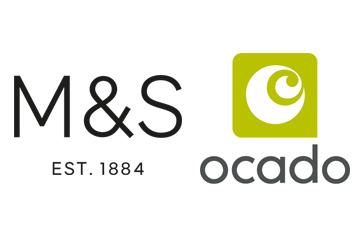WHAT WILL THE ‘NEW NORMAL’ LOOK LIKE FOR IPO AND M&A DEALS?
By Joseph Bikart, Head of Global Investor Communication, Templar Advisors Ltd.
 Thirty-five years ago, the Literature Nobel Prize laureate Gabriel García Márquez published the novel Love in the Time of Cholera, which tells the story of a seemingly impossible union between two young people – Florentino and Fermina – against a backdrop of recurring epidemics.
Thirty-five years ago, the Literature Nobel Prize laureate Gabriel García Márquez published the novel Love in the Time of Cholera, which tells the story of a seemingly impossible union between two young people – Florentino and Fermina – against a backdrop of recurring epidemics.
In corporate life, the Coronavirus pandemic has made other types of unions seem equally impossible – at least in the short to medium term – most notably those between buyers and sellers in the M&A market, and between issuers and investors in the IPO market.
Two weeks ago, for the first time since 2004, no M&A deal worth more than $1bn was announced anywhere in the world.
What about the IPO market? Even though reports of its demise are greatly exaggerated, the patient’s pulse is extraordinarily weak.
Since Italy’s declared lockdowns on March 9th, the aggregate volumes raised in Europe have been a negligible $20m. Still there are signs of hope…
Hope is in the air
- Capital markets are alive and kicking as illustrated by the relative health of the bond market (including the successful $4bn debt issuance by Carnival Cruise at a rather inauspicious time for cruise operators) and the resurgence of junk bond issuance with successful transactions by Sweden’s Verisure and France’s Faurecia, as well as substantial high-yield issues in the US by companies like Marriott, Seaworld and Navistar. This demonstrates that even when prudence is top of the agenda for institutional investors, there is still appetite for the right deal priced attractively.
- The same is true of Private Equity. Even though their portfolios have been impacted by the crisis, those with an eye on the medium to long term haven’t lost their appetite. The private equity industry is sitting on a record cash pile of $2.5tn across all fund types, and firms like Blackstone still see money flowing towards its funds, with its Chairman, Steve Schwarzman, conducting his fundraising pitches via Zoom. At the same time, as history shows, PE firms notoriously do well in down times, and they are keeping a close eye on those once highly priced targets, which may now be within reach. Advent’s Chairman David Mussafer recently told the Financial Times that “it has started talks with global leaders about possible deals”.
- Beyond private equity, investors are also looking to inject debt into companies striving to consolidate their balance sheets. Last week, it was reported that distressed asset manager Oaktree Capital Management is looking to raise $15 billion for a distressed fund.
- Sovereign funds don’t want to miss out on those opportunities either. Later this week, the Qatar Investment Authority declared that it would be looking to actively invest in sectors such as the health and tech industries.Some regions will emerge from the crisis sooner than others. For example, in the first quarter of the year, China has overtaken the US as the world’s most popular location for stock market issuance.
- Even in Europe, companies are starting to contemplate potential windows for share issues. The Norwegian group Pexip is bravely tapping the equity markets to raise $100m in an initial public offering.It may feel boosted by the fact that its business is videoconferencing, at a time where demand for such services is booming, but a successful transaction would undoubtedly create IPO-envy among future issuers. Some key actors even see a window opening up in the third quarter, ahead of the U.S. presidential election, assuming the current Covid-related situation is under control. History will tell whether it was a case of wishful thinking…
The need to transact has never been greater
The 2008 financial crisis led companies to rethink, sometimes even reinvent their business plans. Now again, there are talks of how management teams can pivot their business models to make their organisations fitter to compete in the post-Covid world.
In the context of future M&A and IPO transactions, the current lull in the market offers companies an opportunity to revisit their equity story and simplify, or at least clarify their narrative.
The pandemic has also highlighted and reinforced the importance of balance sheet strength, scale, and diversity of distribution mode. As a result, it has intensified the imperative to raise equity or acquire, or both:
- the argument for geographical/financial diversity has never been more valid
- “too big to fail” has a new resonance as leverage and liquidity are all easier to achieve for larger companies who are leaders in their markets.
- companies with a skill deficit in online distribution will need to bridge this gap in light of their recent performance. It may not be coincidental that M&S just announced that its food business was on track for a tie-up with online grocer Ocado due to start in September which will make M&S products available for home delivery. (Primark, with no online presence, is quoted as saying that its sales have fallen from £650 million a month to zero).
The shape of things to come
So, is this business as usual for those companies planning to present their equity stories to the markets?
Clearly not. A lot has changed as a result of Covid-19, not least because valuing a company today is more arduous than ever.
There are uncertainties at every level: medical (will the epidemic be recurring, what measures need to be taken post lockdown), macro-economic (how will our economies cope and what should governments’ response be?) and of course micro-economic too – all of which make the exercise of valuing a company based on its future earnings almost academic.
Precisely because of this, those companies that will conduct successful M&As and IPOs during and after the current crisis will need to provide more transparency and visibility and be prepared to do this earlier than they may have needed to in the past. Fireside chats in M&A transactions and early look meetings in IPO deals will become more decisive as a result.
It also means that there is likely to be a zero-tolerance stance from institutional investors, PE and strategic buyers alike, when facing companies whose narrative is unclear or anything less than compelling.
This week, Warburg Pincus completed its acquisition of a large stake in Polyplus-transfection®, a developer of innovative biotechnology used in gene and cell therapy. Templar Advisors advised the Management Team of Polyplus on its communication as part of the process. The company’s Chairman, Gabriel Festoc commented:
“For the past two months, all our communication happened on remote platforms. It is a very unusual way to complete an M&A transaction, but it worked. The only ‘in-person’ meeting was at the law firm to sign the contracts. This couldn’t have happened remotely. But instead of the thirty to forty people who would normally attend this important meeting, I was the only one present on the day!”
The communication imperative
A few weeks ago, the Chinese biotechnology company InnoCare Pharma floated for HK$2.24 billion ($289 million) after conducting its deal roadshow without a single face-to-face meeting. It is likely that the company had met investors face-to-face in previous months, but this deal demonstrated the viability of total virtual execution.
Whereas some will moan that virtual meetings do not allow for the kind of chemistry that can only happen in a ‘real’ meeting, if the Innocare deal offers a glimpse of what the new normal may look like, we should embrace this alternative reality. And beyond embracing it, issuers and sellers should also master the new tricks of the trade.
 “Since the start of March, while IPOs have been put on hold, we have seen a wave of recapitalisation transactions for companies in the UK. Techniques for executing these transactions have had to change, now exclusively using digital distribution of presentations and videoconferencing. We would expect the increased use of digital channels to remain in a post-Covid 19 world and expand into IPOs as and when the market opens up.”
“Since the start of March, while IPOs have been put on hold, we have seen a wave of recapitalisation transactions for companies in the UK. Techniques for executing these transactions have had to change, now exclusively using digital distribution of presentations and videoconferencing. We would expect the increased use of digital channels to remain in a post-Covid 19 world and expand into IPOs as and when the market opens up.”
– Tom Attenborough, Head of International Business Development, Primary Markets at London Stock Exchange.
In our experience, remote meetings multiply the opportunities (you don’t need to fly from city to city to present your equity story, and as a result you can connect with many more investors in a more condensed timetable), but from a communication perspective, they also multiply the risks.
In short, all the potential pitfalls associated with regular management presentations are deeper in the context of virtual meetings. Our team at Templar Advisors helps issuers make the most of the new remote environment and minimise the associated communication risks, namely:
- How do individuals come across? If they are unfamiliar with the use of remote platforms, they may appear awkward and ill prepared.
- How does the team come across? Do they still manage to look like a well-integrated team rather than isolated (or worse competing) presenters?
- How does the team interact with investors? And how proficiently do they make use of their presentation material on remote platforms?
- How effectively does the team manage the all-important Q&A session when operating from different locations?
- In addition, in this context, it is likely that potential investors will be interested in meeting with more members of issuers/sellers’ teams. Are they all up to par?
Finally, the current debate about remote platforms (see paragraph below) means that teams will need to be proficient in more than one of these communication tools. Rehearsals were always important but will become increasingly so as a result. Also, equipping presenters with technology like Side-Car that enables them to follow not only the presentation slides but also the audience’s reactions (for example by using dual screens) will be very helpful.
Zoom – In or Out?
While Investment Banks have been using video conferencing for internal events for years, they have been slow to adopt these technologies for externally focused investor communications.
Only with the onset of the COVID-19 pandemic has the imperative to replace face-to-face meetings and presentations with some semblance of the richness of in-person meetings gained urgency. So, of course, banks have turned to well known “pro-sumer” solutions like Zoom, Cisco Webex and MS teams to meet these needs.
 While effective, these solutions were meant to strike a delicate balance between mass audience ease of use and quality and just enough security to meet minimum standards. But as these offerings have suddenly acquired “business critical” status, so too have they come under increasing scrutiny from IT security teams and internal compliance teams. As widely reported, they have been found wanting.
While effective, these solutions were meant to strike a delicate balance between mass audience ease of use and quality and just enough security to meet minimum standards. But as these offerings have suddenly acquired “business critical” status, so too have they come under increasing scrutiny from IT security teams and internal compliance teams. As widely reported, they have been found wanting.
Zoom and others will, no doubt, work expeditiously to shore up these weaknesses and ultimately address the mass market needs for security and privacy that have been lacking. But even so, Investment Banks require a far more robust level of access control, locked-down content sharing and confidentiality than any current mass market solution is prepared to afford.
In addition to the myriad of regulatory compliance requirements, banks must also deal with firmly rooted information security requirements that simply don’t factor into mass market solutions. For example, most of these solutions depend on screen sharing components for content presentation.
Rightly so, most investment banks easily see far too much potential for the inadvertent sharing of confidential data. For business purposes, it is imperative that engagements with each investor be logged and verified in a fully trackable and compliant manner.
We understand that market leaders in compliant investor communications, like NetRoadshow, are stepping up to meet these challenges leveraging the best of today’s video platforms while being optimized to meet the security and compliance workflows of the Investment Banking community. This is definitely a space worth watching.
At the end of the novel Love in the Time of Cholera, the two protagonists finally get reunited, but after many decades. The resurgence of corporate unions via M&As or IPOs may happen sooner than some expect. Are you and your clients ready to wow the markets?
- Request a copy of our Pitching on Remote Platforms brochure and find out how we can help you
Joseph Bikart is a founder of Templar Advisors, and heads its Global Investor Communication Practice. He and his team in London, New York and Hong Kong coach Management Teams of pre-IPO and M&A companies on their communication with investors, analysts, as well as strategic and financial buyers.
Joseph has a background in Equity Capital Markets and specialises in working with investment banks and PE firms on their communication and executive coaching requirements. He runs Templar’s Global Investor Communication division, advising issuers on their IPO communication and corporates and PE firms as part of their M&A deals.
He is a communication advisor and qualified executive coach (Systems-Psychodynamic Coaching). He is also the author of The Art of Decision Making: How We Move from Indecision to Smart Choices.
Special thanks to the Templar team, in particular to Anthony Bernbaum, Lars Muehlenpfordt, Megan Philbin and Lamese Waterfield for their contribution to this article.






